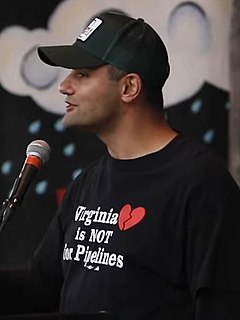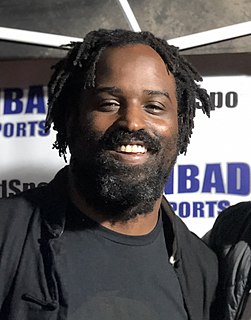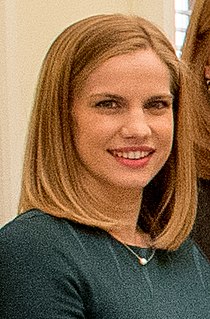A Quote by Dan Ariely
Who would you trust right now? Which bank would you trust? Which investment would you trust? Do you really want to put your money; do you want to suffer more of these losses that we just had? You know, these volatility that we see is just unexplainable by any rational standards. Nobody has any clue about how to explain this, and nobody wants to experience that. So, we hold more money back, we don't necessarily want to invest in the market and by default, people are saving more.
Related Quotes
When the trust is high, you get the trust dividend. Investors invest in brands people trust. Consumers buy more from companies they trust, they spend more with companies they trust, they recommend companies they trust, and they give companies they trust the benefit of the doubt when things go wrong.
I think the Democratic Party is firmly in the wilderness right now and doesn't know exactly what to do. We talk about trust. Fundamentally, the American people have lost a lot of trust in both parties, but in particular, my party. Growing trust is a very simple calculation: People want to know what your values are, and they watch your behaviors. If your behaviors align with your values, then they trust you. If you say I'm for the people, but we're just as bought off as the other party, or we say we're for fairness, but we gerrymander just like the other side, people see.
In my opinion, the greatest misconception about the market is the idea that if you buy and hold stocks for long periods of time, you'll always make money. Let me give you some specific examples. Anyone who bought the stock market at any time between the 1896 low and the 1932 low would have lost money. In other words, there's a 36 year period in which a buy-and-hold strategy would have lost money. As a more modern example, anyone who bought the market at any time between the 1962 low and the 1974 low would have lost money.
When we were young, there weren't very many smart people in the investment world. You should have seen the people in the bank trust departments. Now, there are armies of smart people at private investment funds, etc . If there were a crisis now, there would be a lot more people with a lot of money ready to take advantage.
The underlying strategy of the Fed is to tell people, "Do you want your money to lose value in the bank, or do you want to put it in the stock market?" They're trying to push money into the stock market, into hedge funds, to temporarily bid up prices. Then, all of a sudden, the Fed can raise interest rates, let the stock market prices collapse and the people will lose even more in the stock market than they would have by the negative interest rates in the bank. So it's a pro-Wall Street financial engineering gimmick.
The best way to encourage economic vitality and growth is to let people keep their own money.When you spend your own money, somebody's got to manufacture that which you're spending it on. You see, more money in the private sector circulating makes it more likely that our economy will grow. And, incredibly enough, some want to take away part of those tax cuts. They've been reading the wrong textbook. You don't raise somebody's taxes in the middle of a recession. You trust people with their own money. And, by the way, that money isn't the government's money; it's the people's money.
I used to think that when I got older, the world would make so much more sense. But you know what? The older I get, the more confusing it is to me. The more complicated it is. Harder. You’d think we’d be getting better at it. But there’s just more and more chaos. The pieces—they’re everywhere. And nobody knows what to do about it. I find myself grasping, Nick. You know that feeling? That feeling when you just want the right thing to fall into the right place, not only because it’s right, but because it will mean that such a thing is still possible? I want to believe in that.
Ancient wisdom: deal in personal trust; your word is your bond; avoid extremes; treat the money you invest for others as something sacred; don't take any more perks than you would wish others to take; don't borrow what you couldn't suddenly pay back; imagine the worse case financial scenario and expect it very may well happen; the wealthier you become the more humble you should act.
My whole thing in life is I just want freedom. I thought that money would give me that freedom. I was wrong. It bound me more than it freed me, because now I had more things to worry about, more people asking for money, I thought I had to buy a house and nice cars and different things that people with money are supposed to do.
There is so much temptation to hold on to my career even more now. To try to micromanage and dictate every little aspect. But that's not how I want to do things anymore. I'm thinking about how can I trust God more. How can I surrender more? How can I bring him more glory? It's a fight. But it's one I'm going to keep fighting.
If I'm reading something I happen to know and gets it wrong, I just don't trust the book any more. What I ask of a novel I'm reading is that it should know a fraction more about the things I know than I do. When I'm writing...I ask myself: would I be convinced by this if I read it? If I knocked against this bit of scenery, would it feel solid?





































